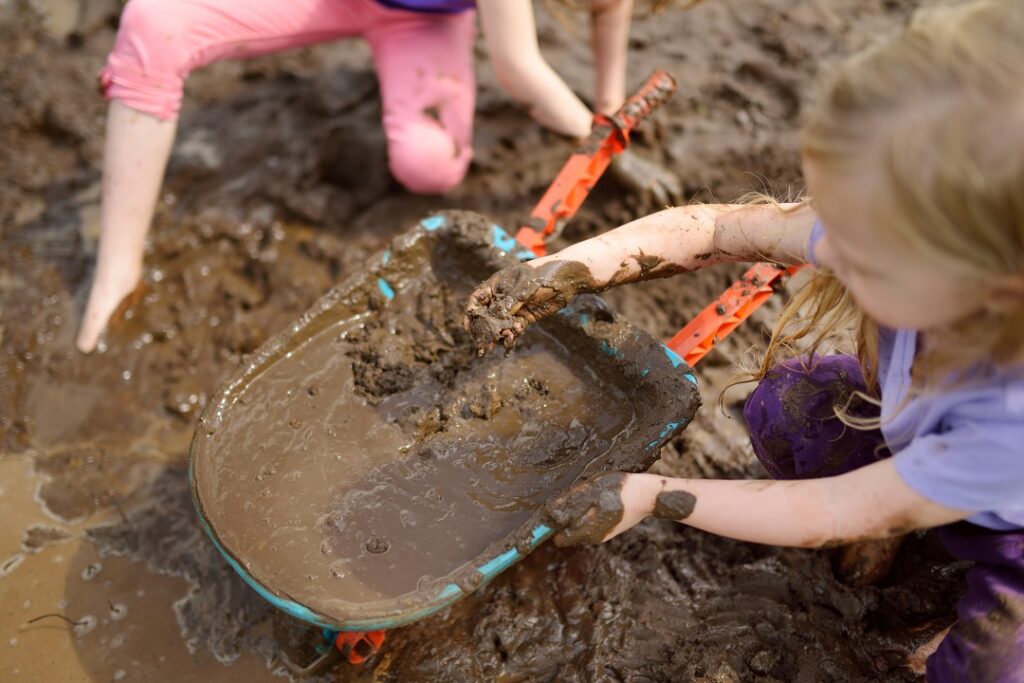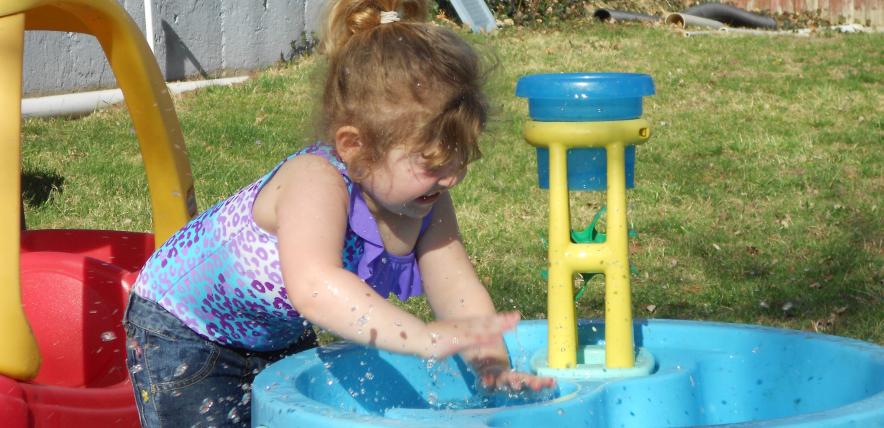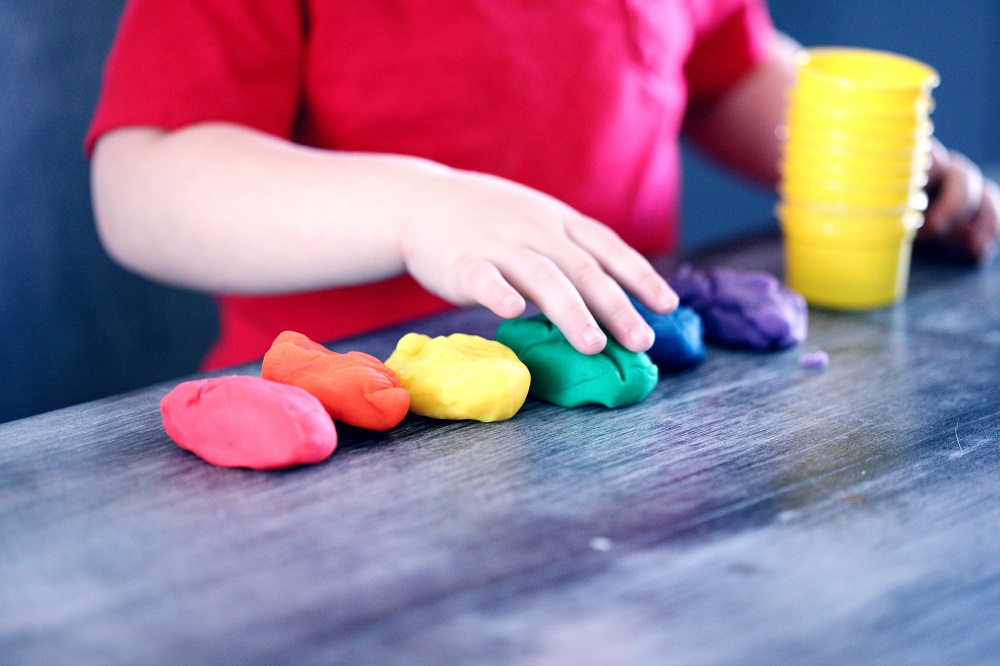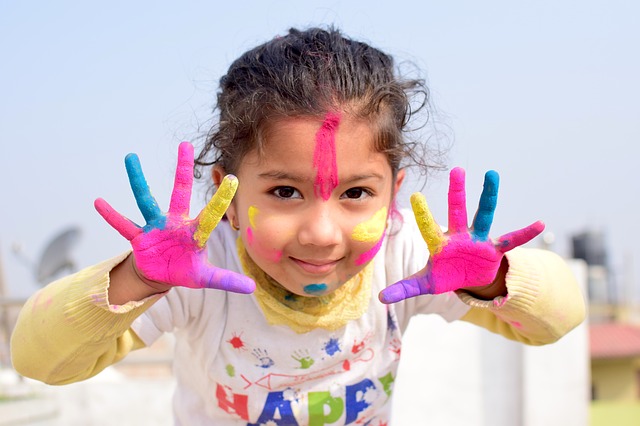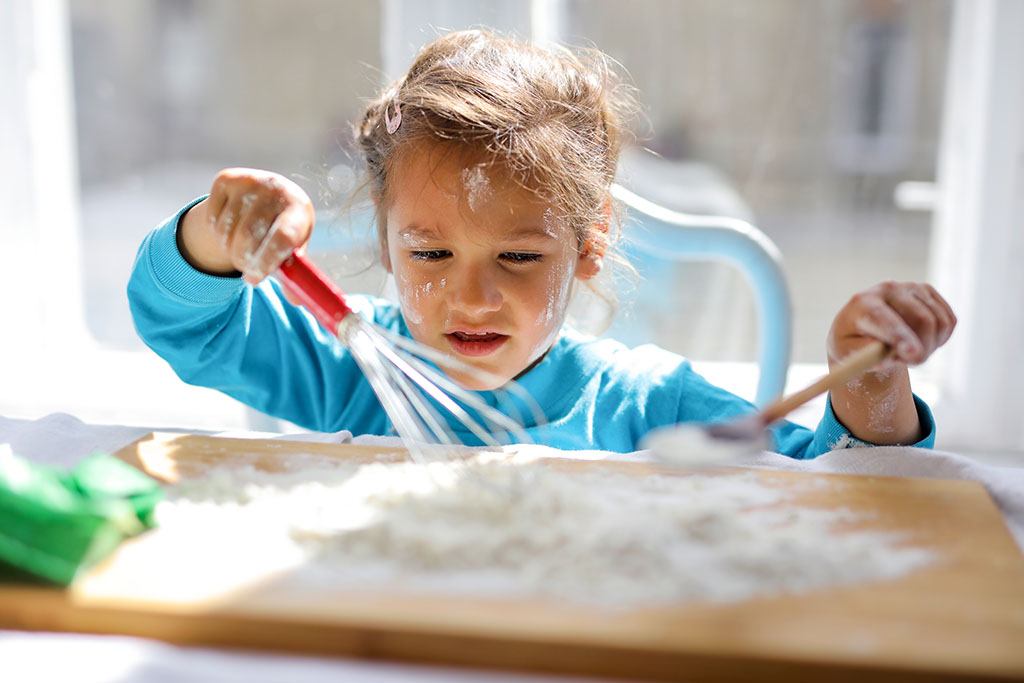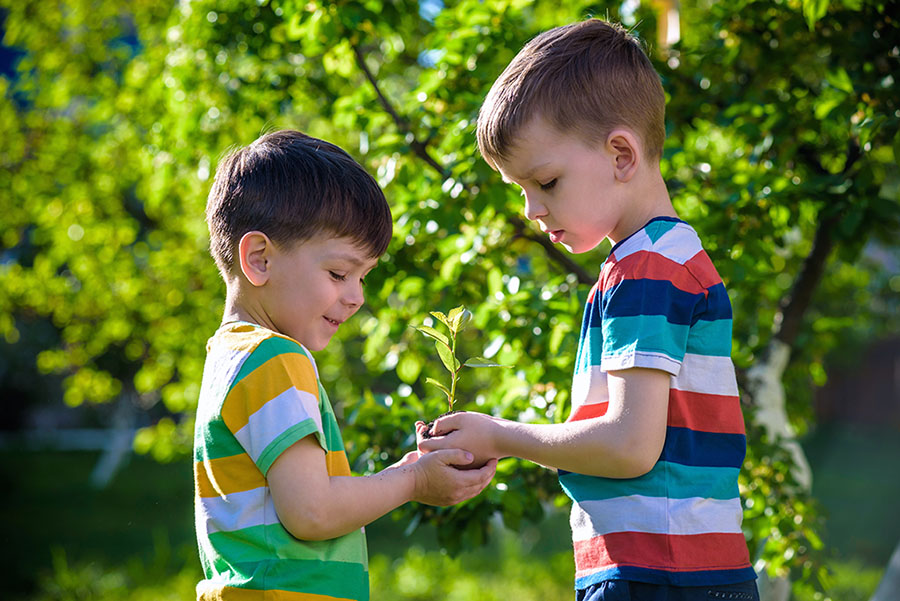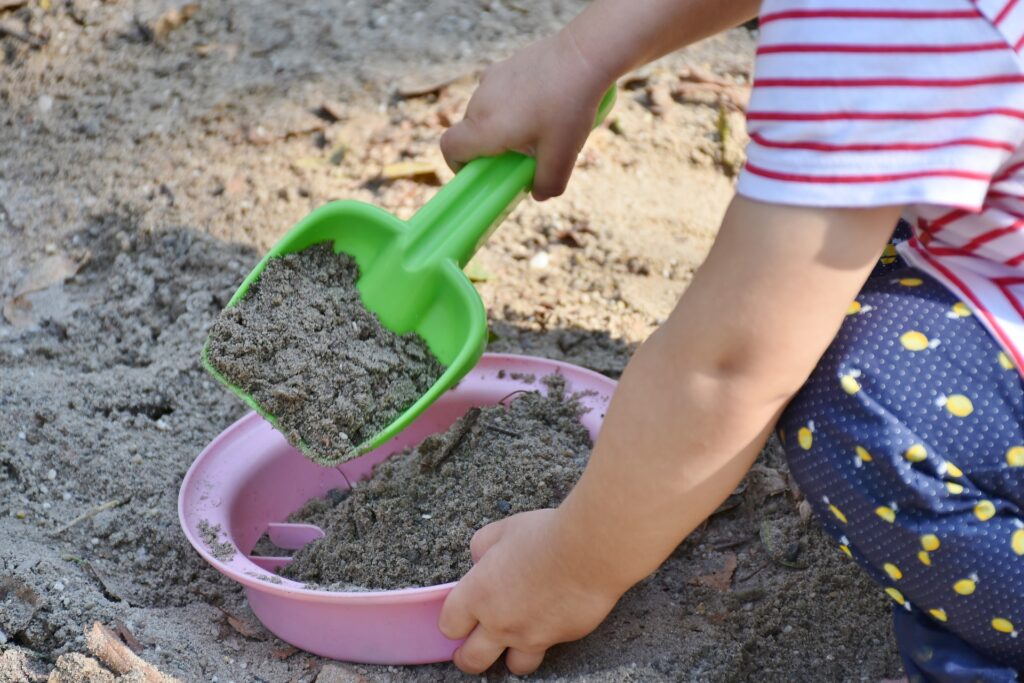Messy play is one of the most important types of play for children of all ages. It encourages brain development, hand-eye coordination, fine motor skills, imagination and problem-solving, all important skills for the early years, school and beyond.
It can be daunting to know where to start so here’s a bit more information on the benefits of messy play and how to get started:
Curiosity, imagination and exploration: Messy play allows children to discover lots of things about different materials that aren’t toys, with no rules in how to use them. They can spend time examining the smell, feel or even taste of different materials.
Children can see how different things such as paint make a splash on paper, make a splashing sound and experience how it feels on or between their fingers; the feel of dough and how it moves when you push it, squeeze it or roll it is fun and fascinating to a young child. Exploring their senses helps a child become more aware of the world around them.
Concentration and future skills: Messy play encourages children to concentrate. Exploring new objects with their hands, feet and all their senses requires a child to focus their attention and decide what to do next, stimulating their brain. It also supports the development of early decision-making skills.
Messy play can also help young children learn sequencing of skills, while manipulating items by turning, lifting, dropping and picking them up stimulates their fine motor skills. All of these are useful later on for developing skills such as early writing and eating independently.
Communication and language development: Enjoying messy play with a child gives lots of opportunities for language development. New words such as ‘hot’, ‘cold’, ‘squishy’, ‘wet’ and the names of colours all help them to increase their vocabulary.
Messy play also allows children to show you things, even when they can’t yet speak. Squeals of excitement, showing you their messy fingers or shaving foam on their head all help to develop the child’s ability to communicate with you and see your responses. Responding to them builds trust and strengthens your bond with the child which helps develop their growing brain.
Learning to play independently: With so much screen time available, some children are losing the ability to be able to play on their own. Messy play can teach children how to make their own entertainment with things they already have.
It can also increase a child’s confidence to know that there is no right or wrong way to do things, ensuring that they can take risks and try new things. By planning, exploring and problem-solving, they are building a self-confidence and self-esteem that will help them learn to be independent.
Nurtures physical skills: Messy play also offers lots of physical benefits, which helps children to learn about their body and personal space while strengthening their muscle tone and control. Pouring, shovelling or drawing in loose materials such as rice, sand or pasta help build strength in the large muscle groups at the top of the arms. These muscles then help smaller muscles in the hands and fingers to make precise and controlled movements.
Playing with tools such as spoons, rolling pins or shovels help develop and practice fine motor skills and hand-eye coordination, until soon they can hold a pen or eat with a fork!
Messy play ideas for families
Water
Washing up, giving dolls and toys a bath, pouring and filling, bubbles and splashing are fun activities for children of all ages. Some warm water, cups, spoons, pots and sieves are all perfect for water play. Add some baby-friendly bubble bath and your children will have a great time. NB: Remember, never leave your child alone with water.
Dough
Dough gives your child lots of opportunities to roll, cut, squish and create. It’s a free-form way to play and is great for fine motor skills. Use this link to get a play dough recipe to make at home.
Painting with fingers and brushes
Paint with brushes or fingers is a fun sensory experience but one often dreaded by parents and carers due to the mess involved. Try putting paint into a washable plastic tub and lots of paper down to have fun with fingers or sponges. It can be useful to strip babies down to their nappy for easy clean up!
Cooking and baking
Making biscuits, mixing flour and pouring batter are all great fun for children and you have a nice treat at the end of it. Cheap cake mixes in bags are an easy way to get your child using their fine and gross motor skills.
Planting and growing
Sowing seeds, watering plants and digging with small trowels are fun ways to engage your child with messy play and improve their eyesight, hand-eye coordination, gross and fine motor skills. A seed planted in a yoghurt pot on the windowsill will keep them engaged for weeks!
Sand
Sand play is endlessly entertaining for children. Sifting, digging, brushing and using moulds is great to improve their eyesight, hand-eye coordination, gross and fine motor skills. Try adding some dinosaurs, digger trucks and some water to pour for a great sensory experience.
Mud
Studies have shown that mud play supports a child’s immune system. Exploring textures, looking for stones and mini-beasts can make mud play really engaging. It will improve their eyesight, hand-eye coordination, gross and fine motor skills.
Shaving foam
Cheap shaving foam is a great way for children to play with all their toys in a fun sensory way (they’ll also smell nice for the rest of the day!) Add in some paint or some small toys to ‘find’ in the foam and your child will be engaged for ages!


